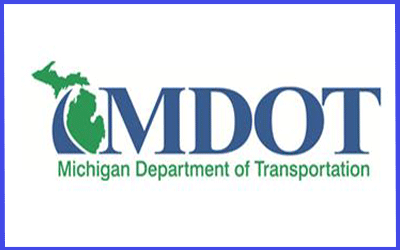Michigan #1 State for Automotive Manufacturing

FOR IMMEDIATE RELEASE July 28, 2021 Contact: achtenbergk@michigan.
Governor Whitmer Announces Michigan #1 State for Automotive Manufacturing According to Business Facilities
LANSING, Mich. – Governor Gretchen Whitmer today announced Michigan has been recognized with six top 10 spots on Business Facilities’ 17th annual Rankings Report for 2021, including a repeat performance with a #1 ranking in the Automotive Manufacturing Strength category. Under Governor Whitmer’s leadership, Michigan has created a record 11,000 new auto jobs in her first year of office, secured the first new auto plant in Detroit in over 30 years, and the Big Three automakers have collectively invested billions of dollars in the future of mobility.
“These Business Facilities rankings reaffirm what we already know: Michigan’s manufacturing workforce is who you turn to when you want to get the job done,” said Governor Whitmer. “We are building on our rich manufacturing heritage as we jumpstart our economy, create thousands of good-paying jobs, and position Michigan as a top state to start and grow a business. As Michigan builds our way out of the pandemic, we have an opportunity to build a nation for the next generation and create economic prosperity for years to come.”
In a reinforcement of the state’s manufacturing expertise, Michigan not only maintained its leading position in automotive manufacturing strength, it also held steady in the top 5 states for manufacturing relative to employment (#4) as well as manufacturing output (#4). This strong showing in the manufacturing sector, in spite of the impacts of a global pandemic, demonstrates the advantages Michigan offers as companies look to strengthen supply chains here in the U.S., as well as Governor Whitmer’s approach to securing short-term small business relief during the past year, while continuing to build a runway for long-term economic recovery in the state.
In addition to a strong showing in manufacturing categories, Michigan also was recognized in categories of health care jobs (#8), food processing leaders (#10) and cybersecurity (#10).
Last week, Lt. Governor Garlin Gilchrist joined officials from Michigan State Police and the Michigan Economic Development Corporation at the CyberAuto Challenge at Macomb Community College to highlight the state’s leadership in cybersecurity and workforce training. Michigan is also home to the Michigan Cyber Range, the nation’s largest unclassified cyber range with hubs across the state offering more than forty industry-recognized certifications, exercises and workshops aimed at qualifying individuals for positions and contracts in cybersecurity fields and Michigan is a Top 10 state for Michigan is a top 10 state for net tech employment according to CompTIA’s 2019 Cyberstates report.
In addition to industry-specific rankings, several Michigan metropolitan areas took Top 10 honors, including Ann Arbor for best health care hubs (#1), Detroit for best business clim
The cities of Grand Rapids-Wyoming also earned a spot in the Top 10 best health care hubs (#10) and Gross Domestic Product (#2) categories.
“From advanced manufacturing to cybersecurity and tech, we are focused on securing Michigan’s leadership in the industries that will drive our economy into the future, and we’re proud these efforts have been recognized in these Business Facilities rankings,” said Quentin L. Messer, Jr. CEO of the Michigan Economic Development Corporation and President and Chair of the Michigan Strategic Fund. “We congratulate our regional partners in Ann Arbor, Detroit and Grand Rapids on their strong showing as well. Economic development is a team sport and in Michigan, we take an wholistic approach to economic development that is building a championship economy for 10 million+ Michiganders right here. Work remains, yet we celebrate and are encouraged by this progress.”
Business Facilities is a national publication that has been the leading location source for corporate site selectors and economic development professionals for more than 50 years. Read more about Michigan’s rankings in Business Facilities’ 2021 report here.
The Business Facilities rankings come on the heels of additional recognition for Michigan’s business climate in recent months, including:
About Michigan Economic Development Corporation (MEDC) The Michigan Economic Development Corporation is the state’s marketing arm and lead advocate for business development, job awareness and community development with the focus on growing Michigan’s economy. For more information on the MEDC and our initiatives, visit www.MichiganBusiness.org |





